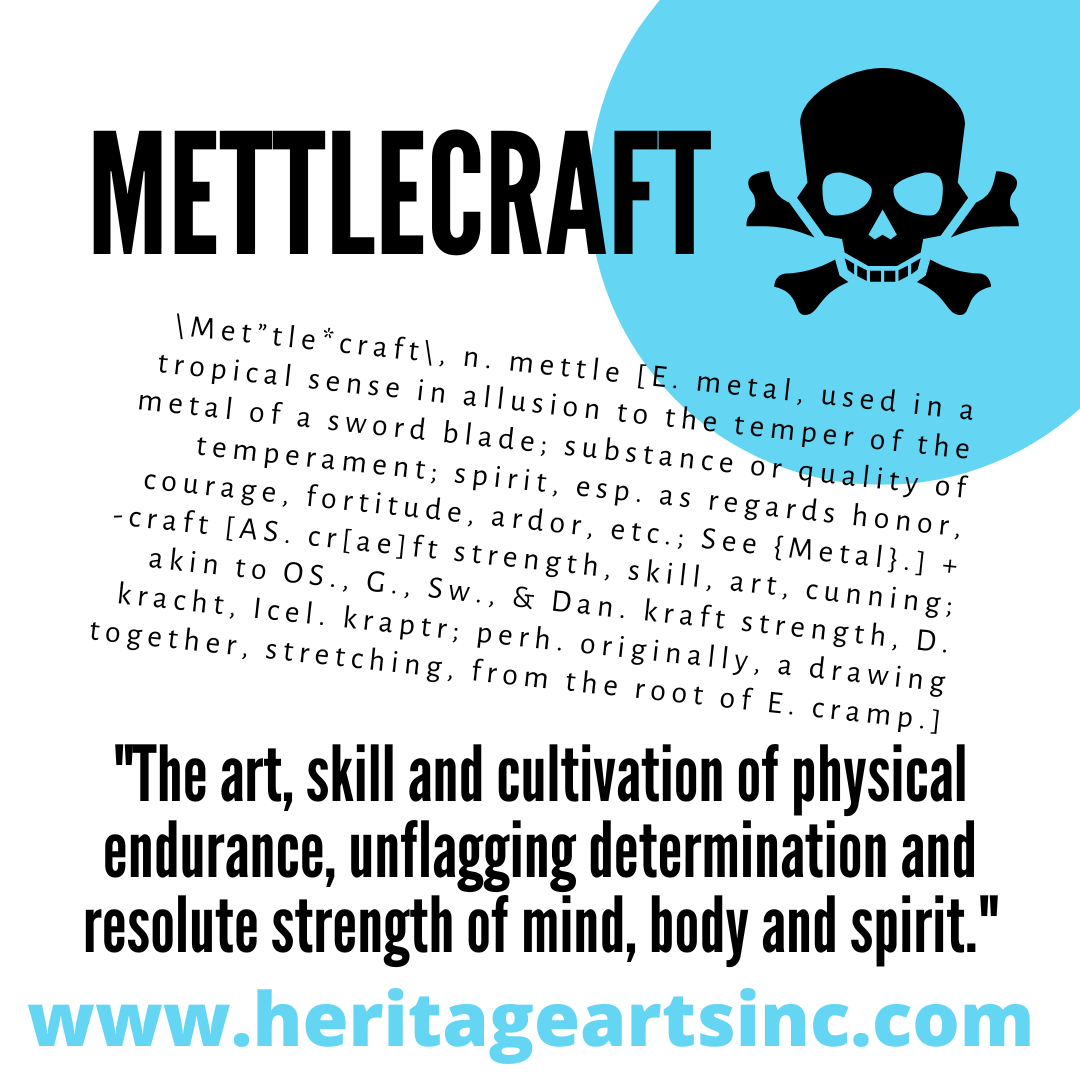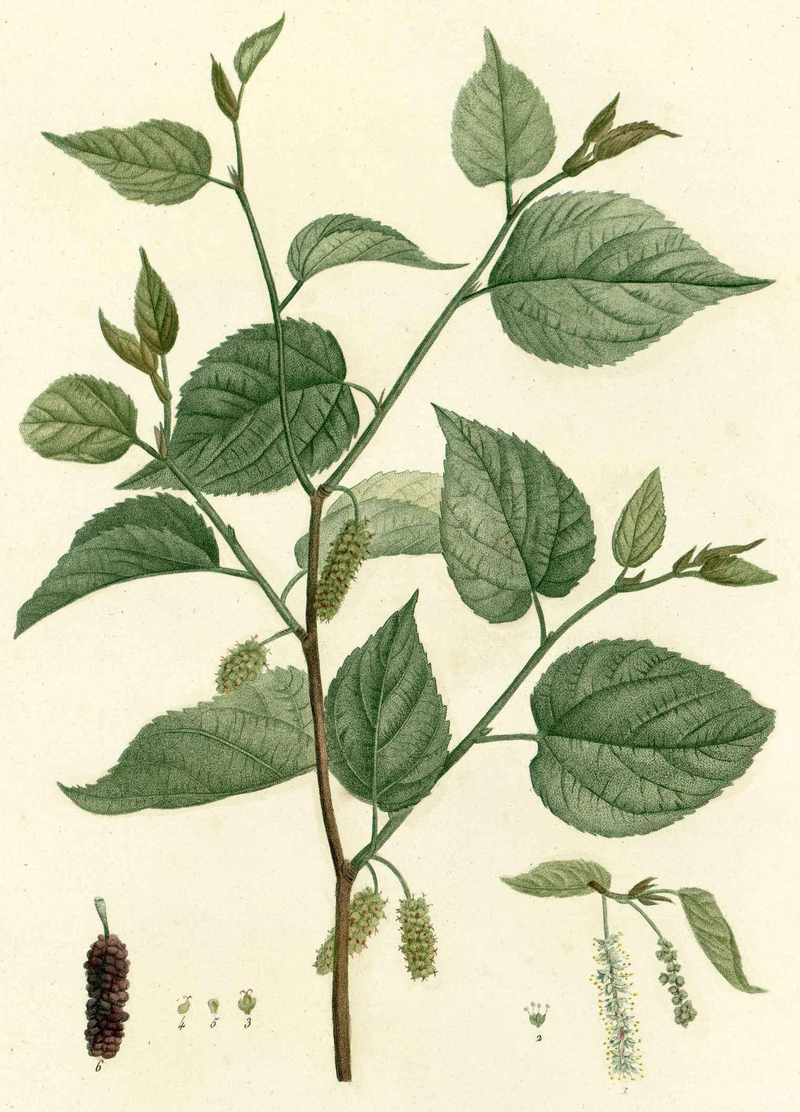What’s the “weekly mettle maker?”
Training ideas and info supporting Heritage Arts’ programs — Heritage Self-Defense, Wildwood outdoor skills, Heritage Fitness, and Heritage Spirit.
Mettle Maker #328
DID YOU KNOW…? That you you can get a daily motivational text message from Heritage Arts? Click the awesome (and perhaps a bit cheesy?) scrolling link below to sign up!
Click here to sign up for DAILY MOTIVATIONAL text messages!
...
Click here to sign up for DAILY MOTIVATIONAL text messages! ...
Self-defense and fitness combo — POW Run. In case you haven’t heard, our Fifth Annual Mettlecraft Month started last week — go here for details! — and the challenge is to complete Constitutional #86 in under 20 minutes. Give that a shot it if tickles your fancy. Or, if you prefer, complete a POW run, as follows: Put your hands behind your head, interlace your fingers, and keep them there until you complete your run. Beginners try to cover 1/2 mile, intermediate 1 mile, advanced players 2 miles. Trust me, it’s an eye-opener and a real gut-check.
Central to this week’s the video and this week’s homily…
…is the story of Major Hugh Clowers Thompson Jr., one of America’s greatest heroes. Watch either the video above, or the homily below, to get the low-down on Mr. Thompson.
Interested in a free martial arts or fitness distance learning program? Check out our free programs here.
Crushed acorn nuts in the dehydrator after soaking
Wildwood — Gathering your nuts for winter - part 3. As mentioned in previous posts, if it hadn’t been for acorns, the indigenous people of Virginia would’ve probably starved to death. But you can’t eat acorns in their unprocessed state. After soaking the crushed nuts in repeated changes of water for four days, I put them in the dehydrator for 8 hours at 100 F to dry. When they were quite dry, I put them in the blender and ground them to flour. How do you cook with it? Well, keep your eye on the YouTube channel for updates — coming soon there will be a crossover video series. My video will fully explain processing and the Two Riders channel will be making a cooking video. Want to learn more about nature appreciation and survival? Sign up for one of our free distance learning programs.
CLICK HERE TO PRINT THE HOLY COMMUNION PROGRAM
Homily the 32nd Sunday in Ordinary Time, Nov. 6th, 2022 – Archdeacon Mitch
Readings: 2 Mc 7:1-2, 9-14, Ps 17:1, 5-6, 8, 15, 2 Thes 2:16-3:5, Lk 20:27-38
At 7:30 AM on the 16th of March, 1968 the soldiers of Company C, first Battalion, 20th Infantry, U.S. Army marched into My Lai, Vietnam and started killing everything that was walking, crawling, running, or growing – women, children, animals, and crops. It was hard work. It was hot. So after a few hours they took a break. While they sat in the shade and had some water and some rations, did anybody desert? Did anybody call HQ and report the tragedy? Nope. When they were rested up, they went back and started killing some more.
When we are tested, brothers and sisters, it might not be as easy as it was for the brothers in today’s Old Testament reading. At least the bad guys were on the other side. What if your brothers aren’t being tortured beside you? What if they are the ones doing the torturing? What if they’re the ones telling you to break God’s rules?
Warrant Officer Hugh Thompson Jr., aged just 25 years, a recon helicopter pilot, was flying air support when he noticed movement in a ditch full of civilian bodies. He assumed they were victims of enemy forces. He landed the ‘copter and began to look for help rescuing survivors. One soldier told him he would only “help them out of their misery.” Another told him he was “just following orders.” He observed one of them shoot an unarmed woman at point blank range. Shocked, confused, and infuriated, Thompson radioed headquarters and reported what he witnessed.
Spotting a group of women, children, and old men in a bunker, Thompson landed his helicopter between them and approaching U.S. soldiers. Risking court martial and the real danger of friendly fire, he told his crew to fire on anyone who attacked the innocents while he was attempting rescue. Fortunately, that did not happen and a dozen innocents were flown to safety. They continued rescuing more civilians, including a 4-year-old girl they found unharmed, buried beneath the dead bodies of her fellow villagers.
Eventually a cease fire was ordered, but not until between 350 and 500 unarmed women, children, and elderly had been butchered. Then came the cover-up. Thompson was awarded the Distinguished Flying Cross, but the citation was filled with lies to hide the atrocities. So he threw it in the trash.
Friends, we don’t do the right thing for the recognition of men – we do what’s right to please God. God is steadfast. Men are fickle. So I’m sure you can predict what happened when the truth came out. Hugh Clowers Thompson Jr., former Boy Scout, devoted Episcopalian, and one of America’s greatest heroes, was called a traitor by the media. Members of congress suggested he be court-martialed. He received death threats. Dead animals were left on his doorstep.
Eventually, after a four-year investigation, over 200 U.S. personnel were charged with crimes and/or court-martialed. Thompson faded from the public eye. After 20 years in the Army, he retired and became a private pilot. In 1998, 30 years to the day after the massacre, he and his courageous crew, Glenn Andreotta and Lawrence Colburn, were awarded the U.S. Army's highest award for bravery outside combat – the Soldier's Medal.
After great tribulation, Thompson’s story ended well. But there’s no assurance the same will be true when impossible moral choices are forced on us. We may well perish like the seven brothers. All we can do is try and prepare ourselves to stand our ground and remember that, even if things don’t end well in this world, God is with us, and there is hope of life in the world to come.




















































